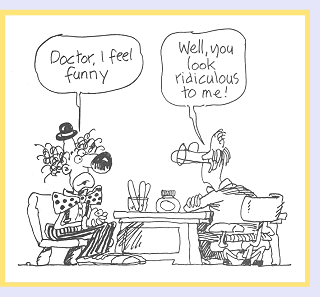
As a first year medical student, I spend most of my time in lecture halls dimly lit by computer projectors learning the basic sciences of medicine. Once every week I get the chance to escape from the lecture halls and spend time in the clinic with patients through a yearlong course where we learn and practice different elements of the patient interview. This course is a welcome reminder of a core reason we are drawn to this profession. However, these experiences are not without challenges.
One of the first concepts we are introduced to is building rapport with a patient and getting to know them as people. Upon this foundation, we add layers of information regarding the patient’s current illness and medical history, social support and family history. Our preceptors also incorporate in these lessons introductions to how to discuss tough issues such as alcohol and drug use, sexual history, and domestic violence. For myself and many of my classmates, it has been difficult to become comfortable with assessing when these questions are appropriate and how to discuss them in a nonjudgmental manner. Even when the patient is actually one of our preceptors role-playing, these patients are strangers and establishing mutual trust is difficult.
Whether asking about possible domestic violence or gathering all the details of the present illness, an overarching challenge that I have encountered as an interviewer is to avoid jumping to conclusions based on a patient’s initial responses. Sometimes, the excitement of remembering a detail in class that might apply to the patient (“It’s the positive pleural pressure!”) inadvertently directs me to jump to specific, closed questions that may miss an important component of the patient’s health. I have to constantly remind myself to go back to the broad, open questions, and I imagine that this balance will be easier with more clinical knowledge and experience.
A challenge from a different perspective is a patient’s reluctance to reveal all the facts or not knowing what information is pertinent to his or her health. The issue is not as simple as the stereotype of patients who lie because they think it will please their physicians, and I did not begin to appreciate this complexity until the first time I was a patient since starting medical school.
My recent visit to the university clinic was for a routine annual physical. As my physician began to ask the same questions that I had been learning throughout the year, I had a feeling of being a detached observer of the interview. I thought to myself, “Well, this is how I would expect a patient to answer,” and then I realized that it was I who was the patient.
For a few questions, I experienced a split second of hesitation to wonder if what I was about to say would be an important detail or if it was just medical school-induced hypochondria. Small things like past tobacco use or an unusual mole. Feeling compelled to be a “model” patient, I did report this information to my physician. She smiled and told me that the occasional cigars in college did not constitute being a past smoker. However, my physician also examined my skin and referred me to a dermatologist. Reflecting on these minimal internal debates, I can only begin to understand what it would be like to be wary of discussing much more serious and personal issues with a physician.
I do not think addressing these issues of communication between patient and physician are as easy as reaffirming confidentiality of the interview. In my observations, the physician does set the stage by expressing empathy and trying to build a connection. I have been surprised that silence can be as effective in interviews as follow up questions. A purposeful pause following a patient response can lead to the patient reframing a more complete response and revealing a significant detail. Yet, I worry if there will be the ability to conduct full interviews as time becomes compressed through medical school and during residency. I hope that my classmates (and future colleagues) and I do not forget the skill of maintaining a full dialogue with our patients.
-Michael Jaung
1st year med student
Harvard Medical School





No comments:
Post a Comment